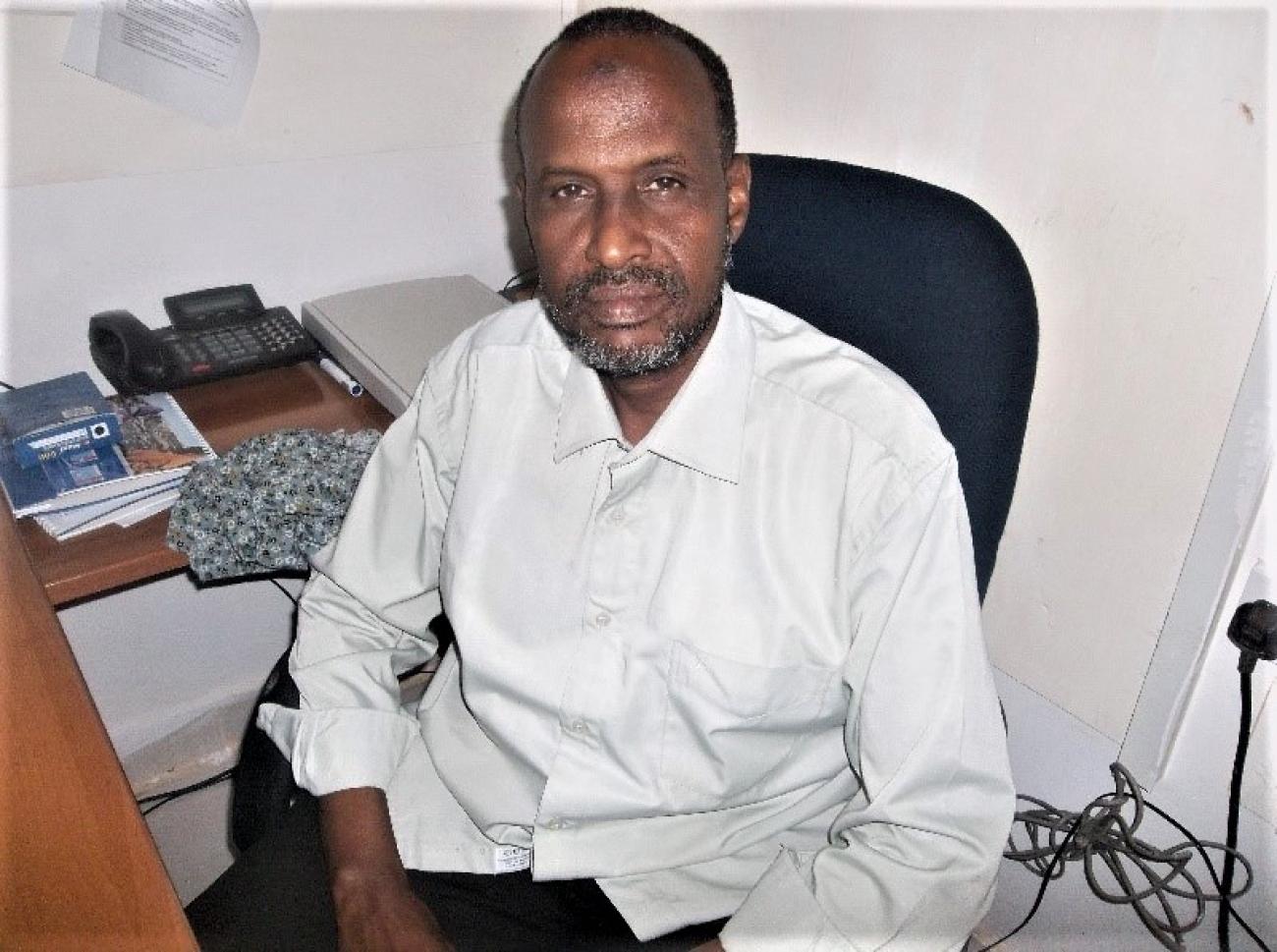Twenty nine years serving humanity, #RealLifeHeroes #WorldHumanitarianday

OCHA-Somalia, Abdullahi Warsame, recounts his close to three decades of experience on the frontline of humanitarian response.
When Abdullahi Warsame Abdi applied for a job with Save the Children in 1991, he never thought that he would last decades as a humanitarian worker in Hiraan region, Hirshabelle State, Somalia. Nearly 30 years later, he feels serving humanity is a lifetime calling.
“I was an agronomist when the Somali central government collapsed in 1991,” says Warsame. “That year, drought hit the country. It was one of the worst. I saw a lot of suffering; people starving, children wasting away. I was touched and really wanted to help the people who were suffering.”
Hiraan region suffers cycles of flooding and drought every year. The region lies within the catchment area of the Shabelle River. Whenever rains intensify in the Ethiopian highlands and the Somali hinterland, the river levels rise and flood low-lying villages. When the rains stop, drought sets in.
“The year that I started humanitarian work, was most challenging,” Warsame explains. “I saw people lose their livelihoods, others dying. I felt for affected families. We initiated programmes at Save the Children, like nutrition assistance, saved some lives and could respond within 72 hours. Later flooding happened and there was more suffering. That time, security was not issue for aid workers.”
In 2008, Warsame joined OCHA’s Belet Weyne office that covers Hiraan. He recalls times of emergency, when resources are scarce and limited, yet affected people expect assistance. “There are days when I stay awake at night, worrying about people who are unable to face the shocks, both natural and manmade. In the morning, I roll up my sleeves and become a voice for the voiceless.”
Climate-related shocks, mainly drought and flooding, have increased in frequency and intensity in Somalia, exacerbating humanitarian needs and undermining household as well as communal resilience. Since 1990, Somalia has experienced more than 30 climate-related droughts and floods, tripling the number of climate-related hazards experienced between 1970 and 1990. Belet Weyne district has experienced 10 flood seasons since 1981, of which eight were major.
From May to July this year, nearly 97,00 people were displaced by floods in Middle Shabelle, Hirshabelle. This was barely six months after the Shabelle River burst its banks following heavy October to November 2019 seasonal rains in Somalia and upstream Ethiopian highlands, which displaced about 273,000 people from their homes. In Balcad district, flash and riverine floods displaced at least 66,000 people and damaged 33,000 hectares of farmland between 24 June and 15 July.
“You cannot picture it in your mind until you see it,” said Warsame. “The pain of quickly abandoning your home because the water has flooded your house; running with children and elderly people to higher ground; leaving your livelihood behind and unsure where or how you can start a new life.”
On a typical day, Warsame, as head of the OCHA Belet Weyne office, spends hours in meetings with UN agencies, NGOs and authorities analysing, planning and responding to ongoing emergencies, or heads out for field work. This year, he has spent much of his time coordinating humanitarian responses to floods, displacement, desert locusts and, lately, the COVID-19 pandemic.
“Sadly, we are dealing with the same problems every year,” Warsame explains. “We are motivated because our actions save lives, but we need to think about more durable solutions. There has to be a way to break the cycle of suffering, to sustainably stop the floods and mitigate the impact of drought. It cannot be business as usual.”
At 63, Warsame is not about to stop being a humanitarian. “Human suffering pains me,” he says.
“I have gained a lot of humanitarian experience. Even in retirement, I will continue advocating for people who need life-saving assistance and protection.”
Link to original story.




